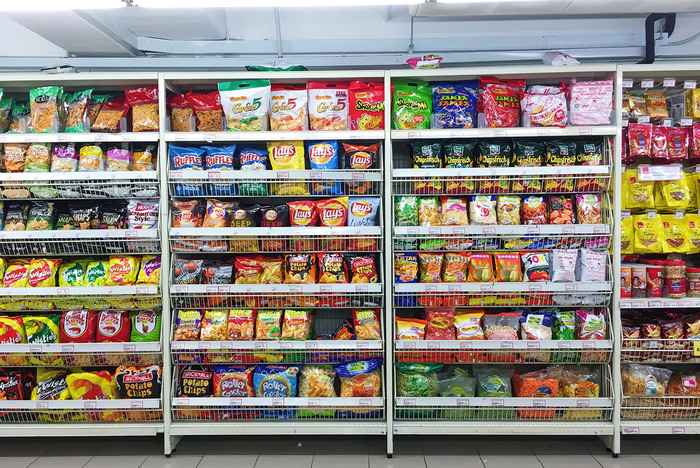
Study programme
The programme
The academic year is divided into 2 semesters, each with 3 periods. You complete each period with an examination. In the first semester, you take the courses Supply Chain Analytics instead of Impact Evaluation, which is compulsory for the Data Science specialisation. In the second semester, you will follow at least one elective that centres around an application area.
-
Advanced Analytics for a Better WorldPeriod 15
Apply mathematical optimisation and machine learning for better decision making. Model relevant societal problems into the framework of optimisation and machine learning and solve them in small teams.
-
Data Science MethodsPeriod 15
Understand fundamental methods used in data science. We also help you develop the skills to apply these methods to economic and econometric data sets.
-
Machine Learning and OptimisationPeriod 1Period 25
Understand the interaction between machine learning and optimisation at an advanced level. Develop the skills to deal with large datasets in order to solve complex global business issues.
-
Privacy, AI, Law & EthicsPeriod 25
Understand EU personal data protection (privacy) legislation. Put your insights into practice through in-class assignments: an assessment of a hypothetical project that deals with issues like a new app or AI-system that involves the processing of personal (sensitive) data.
-
Supply Chain AnalyticsPeriod 25
Understand and improve supply chains. The success of a supply chain depends on decisions made at all levels, from the network design to chosen routes. Get acquainted with analytical tools to optimise a supply chain regarding efficiency, quality, and responsiveness.
-
Applied AI Research SeminarPeriod 35
Apply deep learning techniques for computer vision, information retrieval and multimedia. Use the knowledge from this and previous courses to address a relevant business or societal challenge. The challenges are provided by our governmental and corporate partners in the Amsterdam Data Science network, such as the City of Amsterdam.
-
Reinforcement and Deep LearningPeriod 4Period 55
Understand the exploration/exploitation trade-off via the study of multi-armed bandits and of Markov Decision Processes. Implement various reinforcement algorithms (Monte Carlo & temporal-difference) for more complex problems.
-
Restricted-choice electivesPeriod 45
You can choose one of the following electives: Advanced Marketing Analytics, Advanced People Analytics or Trustworthy AI for Business and Society.
-
Restricted-choice electives: additional coursePeriod 45
You can choose one of the following electives: Advanced Marketing Analytics, Advanced People Analytics, Economic and Financial Network Analysis, Machine Learning in Finance or Trustworthy AI for Business and Society.
-
Master's ThesisPeriod 5Period 615
The Master’s thesis is the final requirement before you can graduate. It is often combined with an internship at a company, institution, public sector agency or semi-governmental organisation. This is your chance to dive deep into a new development or idea that you are enthusiastic about. When writing your thesis, you have the chance to explore it fully while simultaneously training your ability to independently conduct relevant research. You will be awarded the title Master of Science (MSc) upon graduation.
Honours programme
If you are a student of the Master's Data Science and Business Analytics and you have a record of academic excellence, a critical mind and an enthusiasm for applied research, then our Honours programme is a great opportunity for you.

We’ve designed this Master's with input from leading companies. These companies increasingly rely on professionals who can apply data science in various business fields to optimise operating results.Prof. Cees Diks

Ideally, a supermarket has the perfect assortment available at every moment. Optimising shelf space allocated to each product category entails understanding customer behaviour and accurately predicting customer demands based on available data. You will be using transaction data and customer data to model and understand customer demands at the level of individual stores. This is an example of a timely research topic within current applied business analytics based on the huge amounts of customer level data currently available.
-
When do I need to select a specialisation track?
A specialisation track must be chosen when applying for the Master’s programme. However, track modifications are still possible until late October. The criteria for all tracks are identical and do not impact the likelihood of being accepted into the programme.
-
How many students are in the programme?
Our Master’s programme admits around 50 students per specialisation track. If you meet the entry requirements, you will be accepted. This Master’s does not have a numerus fixus.
-
What are the weekly contact hours?
Most courses have one 2-3 hour lecture and one 2-hour tutorial per week. Generally students take 3 courses at a time, so count on about 12-15 contact hours per week.
-
Will all lectures be held in person, or will there be options for online attendance?
Our preference is for in-person lectures. Certain sessions may be pre-recorded or follow a hybrid format. This entails preparing for Question and Answer (Q&A) sessions through video clips and readings, with subsequent discussions during meetings.
-
Is attendance compulsory for lectures, tutorials, and other sessions?
Attendance is usually not compulsory for lectures, but commonly for tutorials and other sessions. Students greatly benefit from being present and engaging in discussions with both the instructor and their classmates.
-
What is the typical method of assessment for most courses?
The majority of courses have a written on-site exam, which counts for a large percentage of the final grade. Most courses have additional assessment methods, including oral presentations, developing research proposals, conducting experiments and writing up results. Finally, some courses grade attendance, which is reflected by presence and activity in tutorials and online assignments.